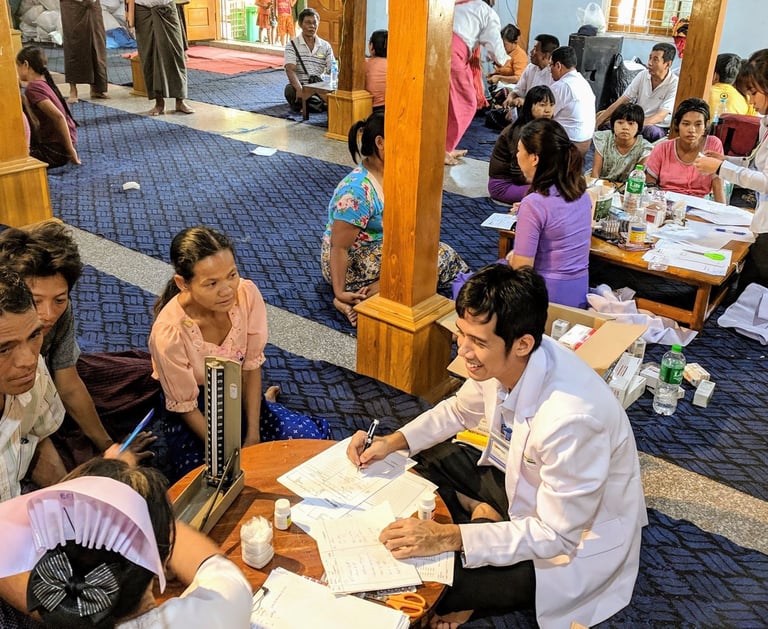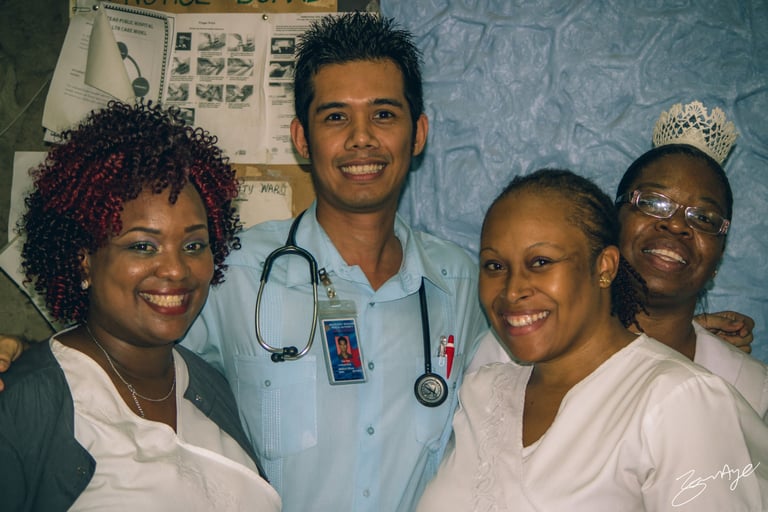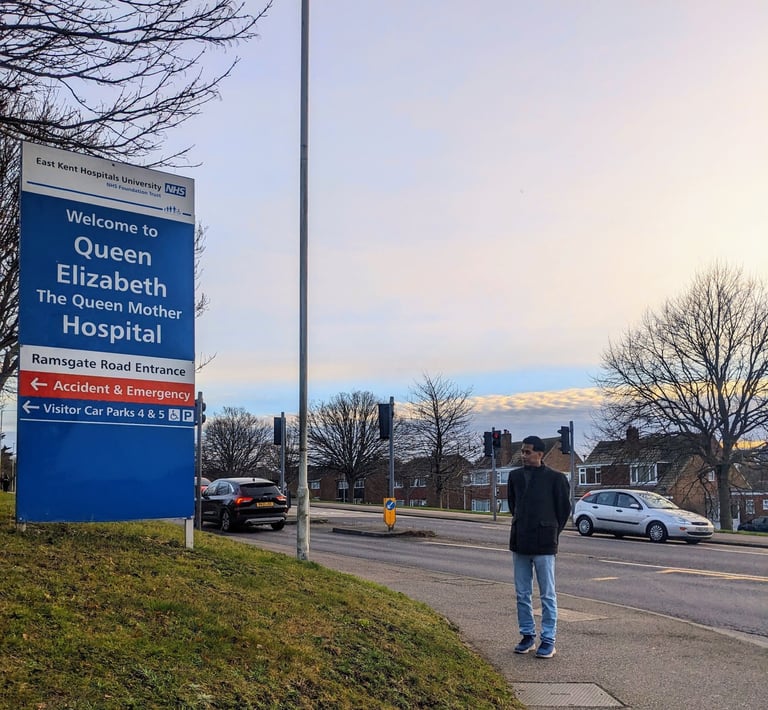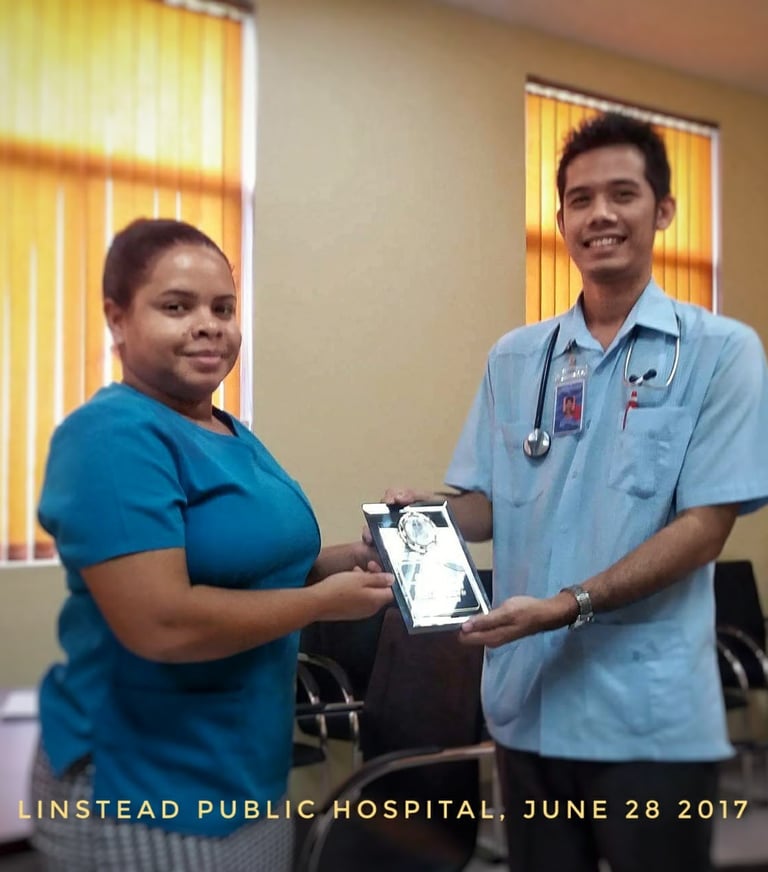Three Nations, One Calling: A Doctor’s Reflection
After practicing medicine across continents for over a decade, the author reflects his early year in the NHS, noting the integrated, multidisciplinary approach as a significant improvement despite staffing and economic challenges. It highlights how the NHS's team-based care contrasts with the more resource-limited, doctor-centric systems he previously experienced.
PROFESSIONAL
Dr Zaw
8/16/20247 min read


Transitioning to the National Health Service (NHS) in the UK has been an eye-opening experience, filled with learning opportunities and challenges that have enriched my understanding of healthcare systems. With six years of clinical experience in Jamaica from 2011 to 2017 and over four years in Myanmar (Burma), I have been exposed to different healthcare models. Arriving in the UK as an agency locum doctor, also known as a Resident Medical Officer (RMO) or Resident Doctor (RD), to work at the Senior House Officer (SHO) level, I’ve quickly noted both pronounced differences and similarities in the delivery of healthcare across these nations.
Before diving into my experiences, I must emphasize that I have less than a year of experience within the NHS. Therefore, my reflections may not fully represent the broader experiences of other doctors. However, I am eager to share my journey as it unfolds, recognizing that this is a continuous learning curve.
Reflecting on My Experience in Jamaica and Myanmar
Clinical Practice in Jamaica
During my time in Jamaica, I worked in a healthcare system where resource limitations were a daily reality. The healthcare infrastructure, while competent, was often stretched thin. As a doctor, I had to take on multiple roles—physician, counselor, and sometimes even administrator—due to the lack of support staff. The doctor-patient ratio was challenging, and we were often required to make quick, life-saving decisions with limited diagnostic tools and personnel.
In Jamaica, healthcare delivery was very much dependent on the doctor’s ability to multitask and manage every aspect of patient care. There was a strong emphasis on clinical acumen, as advanced diagnostic technologies were not always available. Collaboration with other healthcare professionals, while present, was not as structured or integrated as what I have experienced in the NHS.
Healthcare in Myanmar
In Myanmar, the situation was somewhat similar, but the challenges were even more pronounced due to political instability and economic hardship. Healthcare resources were scarce, and access to even basic medical supplies could be unpredictable. The healthcare system relied heavily on the dedication of its medical staff, who often worked under difficult conditions with limited support.
In both Jamaica and Myanmar, I learned to be resourceful, to rely on clinical judgment, and to appreciate the value of every available resource. However, these experiences also highlighted the importance of a well-supported healthcare system—something that became even more apparent when I began working in the NHS.
My Initial Impressions of the NHS
Since joining the NHS, I have been struck by the stark differences in how healthcare is organized and delivered compared to my previous experiences. The NHS, despite its challenges, operates with a level of integration and support that was unfamiliar to me.
Integrated Care Systems (ICS)
One of the most remarkable aspects of the NHS is its Integrated Care Systems (ICS). These systems aim to deliver coordinated care through collaboration between different healthcare professionals. In the hospital wards, it is common to see regular board rounds where doctors, nurses, ward clerks, occupational therapists, physiotherapists, and other team members come together. This multidisciplinary approach ensures that patient care is holistic, addressing not only medical needs but also social, psychological, and spiritual aspects.
In Jamaica and Myanmar, such coordinated care was rare. The focus was predominantly on treating the immediate medical issues, often without the resources or infrastructure to address the broader aspects of patient care. The comprehensive, team-based approach in the NHS is a significant departure from the more isolated practice environment I was accustomed to.
The Role of Pharmacists and Specialized Nurses
Another aspect of the NHS that I admire is the active participation of pharmacists and specialized nurses in patient care. Pharmacists in the NHS play a crucial role in medicine reconciliation, ensuring that medications are appropriately managed during admission and at discharge. They collaborate closely with doctors to discuss any concerns, which enhances patient safety and treatment efficacy.
In contrast, in both Jamaica and Myanmar, pharmacists were often less involved in direct patient care, and doctors had to take on much of the responsibility for medication management themselves. Similarly, specialized nurses, such as diabetic nurses, heart failure nurses, and respiratory nurses, provide targeted care and patient education in the NHS. This level of specialization and support is something I had not experienced before, and it significantly lightens the workload for doctors, allowing us to focus on diagnosis and treatment planning.
In the NHS, there are also teams of tissue viability nurses (TVNs) who manage wounds and pressure sores, often working with medical photographers to document lesions accurately. This specialized approach ensures that every aspect of patient care is handled by experts, which was not the case in Jamaica or Myanmar, where doctors often had to manage these issues on their own.
Multidisciplinary Approach to Patient Care
What truly sets the NHS apart is its multidisciplinary approach to patient care. In addition to the core medical team, patients have access to a wide range of support services, including dieticians, therapists, community support workers, safeguarding teams, and even chaplain services. This approach ensures that patients’ physical, mental, and social needs are all addressed, which is a stark contrast to the more limited, doctor-centric care models I experienced in the past.
In the NHS, the role of the doctor is more focused on recognizing patients’ needs, formulating treatment plans, and coordinating care with the appropriate specialists and allied health teams. This integrated approach, which includes inputs from various experts like microbiologists for antimicrobial decisions, was a new and enlightening experience for me. In Jamaica and Myanmar, doctors were often expected to manage all aspects of patient care, from diagnosis to treatment to follow-up, without the extensive support systems available in the NHS.
Challenges in the NHS: The Reality Behind the Scenes
While the NHS has many strengths, it is not without its challenges. The system faces significant pressure due to increased demand, resource shortages, and economic constraints. The COVID-19 pandemic, ongoing geopolitical issues like the war in Ukraine and Gaza, and the economic recession have all taken a toll on the NHS.
Staffing and Resource Shortages
One of the most pressing issues is the shortage of healthcare professionals and resources. The NHS is struggling to meet the demands of an aging population, and there is an ongoing debate about the use of nurse practitioners and physician associates to fill gaps left by doctor shortages. While these roles are essential, there is concern that relying too heavily on them may not be a sustainable long-term solution.
In my short time with the NHS, I have seen firsthand how these shortages impact patient care and the working conditions of healthcare professionals. The workload can be intense, and the pressures of the job, combined with higher taxes and living costs in the UK, have led many doctors to seek better opportunities abroad in countries like the USA, Canada, Australia, or the Middle East.
Economic and Political Pressures
The NHS is also grappling with economic and political pressures. The “golden era” of Great Britain, characterized by robust public services and strong economic growth, has faded over the past few decades. The economic challenges following the COVID-19 pandemic and the ongoing burden of global support initiatives have further strained the NHS’s resources.
These issues are not unique to the NHS—healthcare systems around the world are facing similar challenges. However, the scale of the NHS and its role as a universal healthcare provider make these pressures particularly acute. Despite these challenges, I remain optimistic about the future of the NHS and its ability to adapt and evolve.
Looking Ahead: My Future in the NHS
My experience in the NHS over the past year has been both challenging and rewarding. The transition from working in Jamaica and Myanmar to the UK has broadened my perspective on healthcare delivery and highlighted the importance of a well-supported, integrated healthcare system.
While the NHS faces significant challenges, it also offers tremendous opportunities for professional growth and development. I am eager to continue my journey in the NHS, and I hope to join a training program in a medical specialty that aligns with my interests and career goals. However, I also recognize that personal circumstances may change, and I remain open to exploring different paths as my career progresses.
Conclusion
My journey in the NHS is still in its early stages, but it has already provided me with invaluable insights into the complexities and strengths of one of the world’s most renowned healthcare systems. The differences between the healthcare models in Jamaica, Myanmar, and the UK are profound, and my experiences in each country have shaped my approach to medicine in unique ways.
I look forward to sharing more of my experiences as I continue to navigate my career in the NHS. This is a continuous learning curve, and I am grateful for the opportunities I have had so far. The NHS has its challenges, but it also offers a supportive, multidisciplinary environment that I believe is crucial for delivering high-quality patient care. I am excited to see where this journey takes me and how I can contribute to the future of healthcare in the UK.
Dr Zaw (16 Aug 2024)








Blog
From Yangon to UK: Decades of Medicine, Moments of Reflection
LINKS:
FIND ME ON:
© 2026. All rights reserved.
